Share
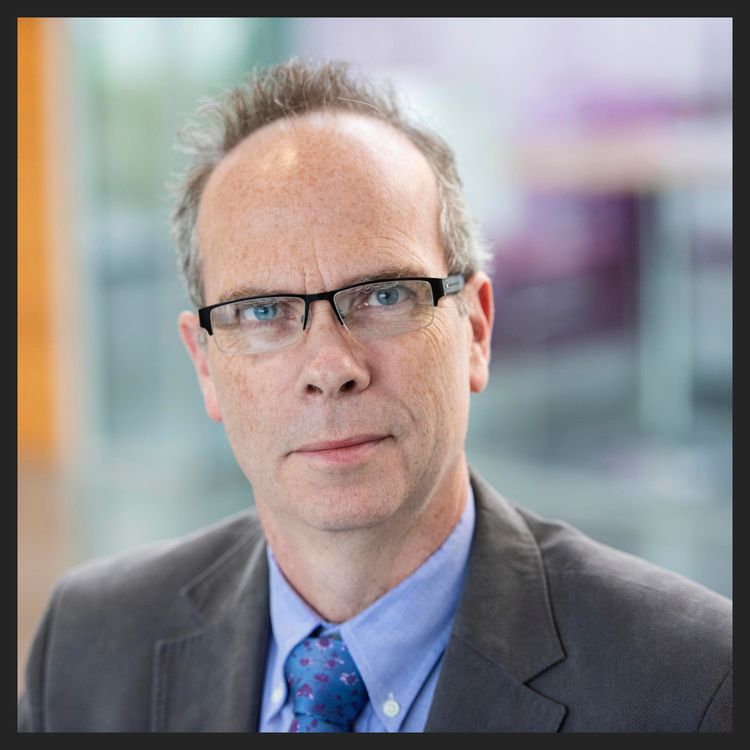
The Doctor's Kitchen Podcast
#274 Why we age and what we can do to stop it with Prof Richard Faragher
Six conditions cause the majority of deaths in the world, these include dementia and cardiovascular disease. Traditionally, we’ve looked at these conditions through the lens of what goes wrong individually, such as blocked arteries around the heart or tangles of proteins that impair electrical signalling in the brain. But the common denominator is actually ageing.
As grandiose and esoteric as that sounds, ageing and the processes that govern ageing are what we need to be tackling if we want to better manage or even prevent these conditions of older age.
And with me to discuss why and how we age is Richard Faragher. He’s Professor of Biological Gerontology at the University of Brighton, and has dedicated his career to understanding the ageing process and what we can do to improve this inevitable phase of life.
As you can tell from today's episode, Richard is a passionate advocate for older people and can wax lyrical about the history of the gerontology field.
A few definitions before we dive into the episode I think will be helpful for people who are new to the research.
There are agreed “hallmarks” of ageing that are a description of processes, such as metabolism and DNA repair functions, that go awry as we grow older. Ageing is caused by these changes at the molecular level that lead to downstream effects like disease and degeneration.
Cell senescence is what happens at the end of a cell's lifespan, where they become dysfunctional and need to be removed by immune cells. However in older age, it can become more troublesome for your immune system to clear away these senescent cells and increasing inflammation ensues.
Senolytics are compounds or drugs that have been designed to selectively eliminate these senescent cells. And the hope is that they can mitigate a range of age-associated conditions like arthritis, cataracts, dementia and more.
Trigger warning. We discuss a graphic analogy for senescent cells using suicide, so I just wanted to give a heads up for anyone who might find that analogy uncomfortable.
🎬 Watch the podcast on YouTube here
📱 Download The Doctor’s Kitchen app for free*
🌐 View full show notes, including guest details, on our website
*The Doctor's Kitchen App gives you access to all of our recipes, with specific suggestions tailored to your health needs and new recipes added every month. We’ve had some amazing feedback so far and we have new features being added all the time - check it out with a 14 day free trial too.
Do check out this week’s “Eat, Listen, Read” newsletter, that you can subscribe to on our website - where I send you a recipe to cook as well as some mindfully curated media to help you have a healthier, happier week.
More episodes
View all episodes
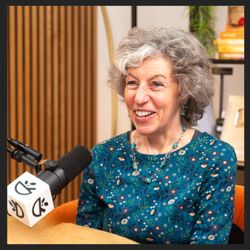
#336 Whether Antidepressants Actually Work and the Myth of Serotonin Imbalance | Professor Joanna Moncrieff
01:30:15|Today we’re having an uncomfortable but very necessary conversation about antidepressants and the theory that these drugs work for those with depression by correcting imbalanced chemicals in their brain.Our guest to discuss this topic is Joanna Moncrieff, a Professor of Psychiatry at University College London, and works as a consultant psychiatrist in the NHS. She is author of numerous scientific papers including a major review that showed there was little evidence to support the idea that depression is caused by a serotonin abnormality. Her most recent book "Chemically Imbalanced: the making and unmaking of the serotonin myth” is what we’re going to be discussing today.This was a complete eye opener for me. For years I believed in the pharmaceutical washed message that antidepressants worked because of a genuine brain chemical imbalance that we corrected with medications. This is not proven.Today we’ll discuss over-use and misrepresentation of psychiatric drugs in the public sphere, the changing philosophy of mental health and how we got to a point where over 8 million people in the UK use antidepressants.We discuss what serotonin is, how we measure it in the body, why the imbalance theory is inconclusive, whether antidepressants have good evidence that they work and their many side effects.I want to make it clear that this episode is not meant to shame or belittle anyone on medications for mental health, but provide accurate information about how we can safely treat these problems and offer informed consent weighing up the pros and cons of medications like antidepressants. The use of these medications has well recognised withdrawal and dependency effects and should not be stopped without strict supervision of your medical practitioner. We’ve also linked to the Maudsley deprescribing guidelines here in the show notes for practitioners educating themselves on how to do this with their patients.Chemically Imbalanced BookWebsite: https://joannamoncrieff.com/🎬 Watch the podcast on YouTube here📱 Download The Doctor’s Kitchen app🌐 View full show notes, including guest details, on our website☕️ Try Exhale Coffee here🥗 Join the newsletter and receive a 7 day meal plan📷 Follow on Instagram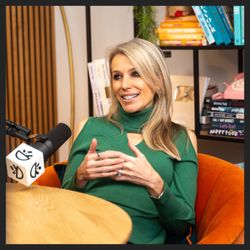
#335 Saliva Tests, Poop Cameras, Digital Coaches and What the Future of Health Looks Like with Lara Lewington
01:29:56|Even though I’m a skeptic I love health tech. I wear a wearable, I play with red light therapy gadgets and I monitor my bloods more regularly than a lot of my peers. Rather than being overwhelmed with the data, I thrive in it, and I’m able to reasonably weigh up the information from all these inputs because of my experience of being a medical doctor for over 15 years.But with so much health tech interest, the landscape has become confusing and it can be hard to separate health from hype.So we’re chatting to Lara Lewington today who’s covered some of the world’s greatest innovations, presenting the BBC’s flagship technology show, Click and many more. She’s explored Artificial Intelligence in health, the use of home hormone testing and whether there are any devices that can actually help us meditate better.This is a super fun episode where we discuss what tech is available today that can help us eat, sleep and exercise better as well as stress less and prevent disease. I learnt both about the world of breath testing to guide our food choices, an app to help you with jet lag, as well as the potential for intelligent and personalised cancer screening.Hacking Humanity dives into this and a lot more, which is available in all good bookstores.Some of the products discussed include:WhoopOuraOmedDexcom and Abbot CGMsTimeshifter AppEli HealthBrainPatch AIGrail TestingTruecheckEzra🎬 Watch the podcast on YouTube here📱 Download The Doctor’s Kitchen app🌐 View full show notes, including guest details, on our website☕️ Try Exhale Coffee here🥗 Join the newsletter and receive a 7 day meal plan📷 Follow on Instagram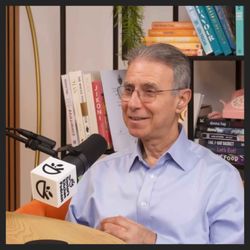
#334 The One Pesticide Everyone is Exposed To and Why It Should Be Banned | Prof Michael Antoniou
01:21:11|Glyphosate is the world’s most widely used weedkiller. It’s found on farms, in parks, and in over 50% of UK urine samples. Today you’re going to find out more about its impact on human health and why it should be banned, from Professor Michael Antoniou.Professor Michael Antoniou is a molecular geneticist and gene engineering expert at King’s College London, whose research explores how agricultural chemicals like glyphosate affect our bodies, our microbiome, and our long-term health.We discuss: 🌿 What glyphosate actually is and how it works by blocking a crucial enzyme in plants and microbes. ⚗️ Why it was deemed safe and why new evidence suggests we may have underestimated its risks. 🧠 The latest research linking glyphosate exposure to gut microbiome disruption, liver disease, and cancer. 🥦 Which foods carry the highest residues and whether washing, peeling, or buying organic makes a real difference. 🧬 How chronic exposure builds up in the body and what steps you can take to reduce your exposure today.Professor implores everyone to support the PAN movement to prevent glyphosate use in towns and across the UK food supply. You can check out the link to help create pesticide free towns here. https://pan-uk.eaction.org.uk/pesticide-free-towns🎬 Watch the podcast on YouTube here📱 Download The Doctor’s Kitchen app🌐 View full show notes, including guest details, on our website☕️ Try Exhale Coffee here🥗 Join the newsletter and receive a 7 day meal plan📷 Follow on Instagram
#333 Why Muscle Is the Organ of Longevity with Dr Gabrielle Lyon
01:20:38|We’ve long been told that health starts in the gut, but what if the key to ageing well begins with your muscles?This week I’m joined by Dr Gabrielle Lyon, physician, author of Forever Strong, and founder of the muscle-centric medicine movement. Gabrielle’s work reframes how we think about muscle not just for strength or aesthetics, but as a powerful metabolic and endocrine organ that drives longevity, energy, and resilience.In this episode we discuss: 💥 Why muscle is the foundation for metabolic health 🥩 How much protein you really need and how to get it right 🏋️ How good muscle health impacts, inflammation and brain function 🧘♀️ The mindset shifts that make new habits actually stick and why we need to think about “standards” rather than goalsWhether you’re in your 30s trying to stay active, or in your 60s building strength for life Gabrielle is going to get you pumped about getting pumped! After recording this pod I wanted to run to the gym and start working out with those kettle bells! Dr Lyon's new book - The Forever Strong Playbook - is released on 27th January 2026.🎬 Watch the podcast on YouTube here📱 Download The Doctor’s Kitchen app🌐 View full show notes, including guest details, on our website☕️ Try Exhale Coffee here🥗 Join the newsletter and receive a 7 day meal plan📷 Follow on Instagram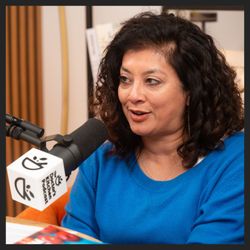
#332 How Eating Local, Organic food Is Best for Environmental Health | Mallika Basu
01:23:06|What we eat isn’t just about taste or health, it’s shaped by a powerful global system that connects farmers, supermarkets, climate, and culture.This week I’m joined by Mallika Basu, food writer, consultant and author of the new book ‘In Good Taste’, to unpack how our everyday food choices link to much bigger issues from biodiversity loss to culture, inequality and the economy.But this is a conversation about sustainable eating from a food lover's perspective.You’re going to find out …🐟 Why I may have to adjust my fish eating habits to avoid or reduce salmon 🍅 How traditional diets are climate friendly, and delicious! 🌱 Whether regen and organic farming is worth itThis is a conversation about how we can all influence the future of food through our choices and our love of cooking.🎬 Watch the podcast on YouTube here📱 Download The Doctor’s Kitchen app🌐 View full show notes, including guest details, on our website☕️ Try Exhale Coffee here🥗 Join the newsletter and receive a 7 day meal plan📷 Follow on Instagram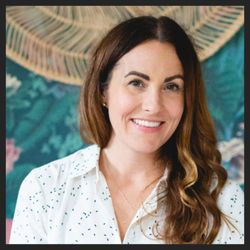
#331 Should We Avoid Fluoride and Is Mouthtaping Actually Worth It? | Dr Staci Whitman
01:42:25|Your mouth isn’t separate from the rest of your body, it’s a key part of your airway, your microbiome, and even your inflammation levels. In this episode, I’m joined by Dr Staci Whitman, functional dentist, to explore the everyday habits and products that can make a real difference to oral and whole-body health.We talk through mouth taping and why nasal breathing matters for oral health, sleep quality, and overall physiology. Who should avoid mouth taping, and safer options.How chronic mouth breathing affects dry mouth and the oral microbiome, gum health, cavities, bad breath, airway, sleep, and long-term facial/jaw development (especially in kids).Ancestral diets and how that plays a role in jaw development, and the dental impact of modern snack foods. Plus nutrients for dental health like vitamin D, K2, Calcium and vitamin C.And controversially we talk through fluoride in our water and toothpaste. What fluoride is used for and what the controversy tends to be about, and practical oral-health “non-negotiables” that matter alongside fluoride.Dr. Staci Whitman is a board-certified functional and integrative dentist specialising in the oral-systemic connection, how the mouth links to the gut, brain, hormones, and airway health. She’s the founder of Bloom Kids (a leading functional paediatric dental practice), co-founder of the Institute for Functional Dentistry, and co-founder of Fygg, a microbiome-friendly oral care line.🎬 Watch the podcast on YouTube here📱 Download The Doctor’s Kitchen app🌐 View full show notes, including guest details, on our website☕️ Try Exhale Coffee here🥗 Join the newsletter and receive a 7 day meal plan📷 Follow on Instagram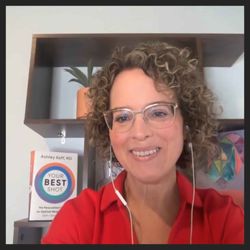
#330 GLP-1s. Everything You Need to Know | Ashley Koff, RD
01:59:46|I don’t think GLP-1 meds are the answer for everyone, but I also don’t think they’re the villain of the story. For many people they can be genuinely life-changing, when they’re used with the right support. So this episode is for anyone who’s made that decision (or is seriously considering it) and wants to do it safely, sustainably, and with as much information as possible. -I can’t stop you from taking these medications, but I can help you be informed: what to ask, what to monitor, what to eat, and how to protect your muscle, gut, and long-term health along the way.Today’s episode is all about one of the biggest health conversations happening right now: GLP-1 medications.I’m joined by Ashley Koff, RD, to give you the straight dope on what’s really going on beneath the surface: why so many of us are struggling with food noise, why some people never reach that “80% full” feeling, and what it means when your metabolic switches (the appetite and satiety systems that should be working in the background) aren’t firing properly.We break down GLP-1s, starting with what happens in an optimally functioning body: the roles of hormones like GLP-1, GIP, PYY and CCK, and how they influence hunger, fullness, blood sugar, and cravings. We also talk through what side effects might be telling you, what to monitor if you do choose medication, and whether supplements have a role — including the so-called “GLP-1 boosters” you’ll see everywhere.Most importantly, this episode is for anyone who wants lasting fat loss and better metabolic health, with or without drugs.Ashley Koff is a registered dietitian and founder of the Better Nutrition Program, and she trains clinicians as course director for UC Irvine’s Integrative & Functional Medicine Fellowship. She’s also the author of the upcoming book ‘Your Best Shot’.🎬 Watch the podcast on YouTube here📱 Download The Doctor’s Kitchen app🌐 View full show notes, including guest details, on our website☕️ Try Exhale Coffee here🥗 Join the newsletter and receive a 7 day meal plan📷 Follow on Instagram
#329 Is My Wife’s 10-step Morning Wellness Routine Worth It?
01:28:17|I’m seeing “perfect” wellness routines everywhere! Red light masks, infrared saunas, ice baths, supplements lined up on the kitchen counter, breathwork, journaling, grounding mats… the list goes on.And yes, my wife has been trying most of them.So today, we’re doing something a bit different. We’re recreating those little “sofa consults” we have at home. We’ll be casually watching TV, and out of nowhere she pauses the show, turns to me dead seriously, and hits me with a question like…“Babe… what are your thoughts on grounding mats?”So the format is simple: she’s going to take us through her wellness routine from morning to night, and after each bit she’ll ask me what I think.I’ll give it a verdict, the why behind it, and a quick takeaway you can actually use, so you can make a choice as to whether you want it in your routine or not.If you liked this episode let me know by leaving a comment on Spotify, or shooting us a message on instagram. I’ll be watching out for them! 🎬 Watch the podcast on YouTube here📱 Download The Doctor’s Kitchen app🌐 View full show notes, including guest details, on our website☕️ Try Exhale Coffee here🥗 Join the newsletter and receive a 7 day meal plan📷 Follow on Instagram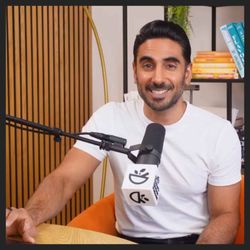
#328 5 things I changed this year because of the podcast | Dr Rupy Aujla
57:43|In 2025 we’ve had world experts come into the DK studio, meet the team, sit right here in this room and let me tease their brains, challenge their ideas and help us bring you the most up-to-date, practical advice out there.These guests changed the way I personally eat, the way I move, the way I recover, the way I think and even the way I structure my day.So in today’s episode, I want to share the 5 health habits I changed this year because of this very podcast you're listening to, because I’m on this journey with you.I’ll talk about my changing perspectives on:Red Meat and whether you can safely eat it regularly or not?How to consume more variety of fibreWhy movement snacking is just as important as structured workoutsIf sauna is worth it and what an evidence based protocol looks likeHow to reduce screen time and improve your dopamine levels🎬 Watch the podcast on YouTube here📱 Download The Doctor’s Kitchen app🌐 View full show notes, including guest details, on our website☕️ Try Exhale Coffee here🥗 Join the newsletter and receive a 7 day meal plan📷 Follow on Instagram